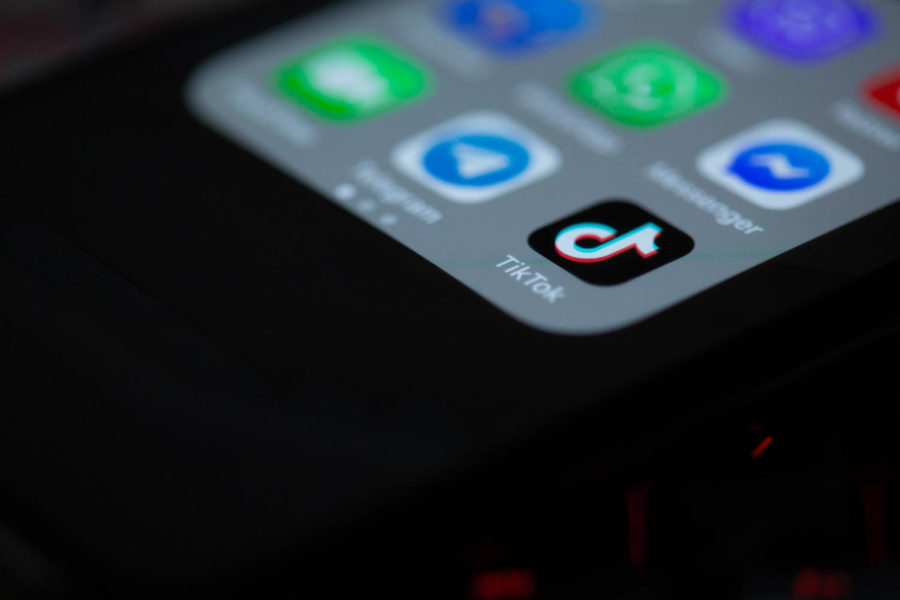Would a TikTok Ban be all that Bad?
April 7, 2023
I’ve never caught onto the trends that most people my age were into. I hardly ever used Instagram when I had it, I only have Snapchat to talk to a few select people and still have never even downloaded TikTok. So when I started seeing news about social media lowering attention spans, harming people’s mental health and especially the recent revival of the proposed TikTok ban? Frankly, I felt like I had dodged a bullet. But if all these things are true, why do so many people still use these apps so often?
Watching excess short-form video content can be likened to going through an entire bowl of potato chips in one sitting. You certainly don’t need to, and you might not even consciously want to, but you just keep going back for one more, then just one more, until you run out of “one more’s” and are left with a bowl of crumbs and a potential upset stomach. So what happened? Short, quick videos, much like those potato chips, are completely devoid of substance, addictive, and make it easy to go through a whole bowl- or over an hour of scrolling- in the blink of an eye.
The effect this is having on the minds of the target audience is clear, as more and more people become incapable of focusing on complex tasks, or unwilling to make hard decisions that would lead to a greater outcome such as exercising regularly or cutting out ultra-processed unhealthy foods. The reasoning is not that they’re “lazy” or bad people, but that they have been conditioned to always seek a quick route to satisfaction by the apps that consume hours and hours of their time.
Platforms regularly throw their consumers’ mental health under the bus in order to get them addicted to their service. According to Yiǧit Bozok, a master’s student of consumer psychology at Leiden University, “Simply put, the only goal is user engagement… Marketers and content creators know well that short-form content isn’t mentally ‘satiating.’ You don’t really go to the cinema to watch as many movies as you possibly can.” Bozok then goes on to highlight how, once in a “rabbit hole” of scrolling through an endless feed of videos that TikTok provides, you won’t be able to find a good stopping point because there is never any substantial content that satisfies you, like how the potato chips never give your body enough nutrition to be content with setting them aside.
So, people with self-control issues might have problems putting down their phones, so what? Well, there is never only one consequence of such a complex issue. According to the Center for Countering Digital Hate (CCDH), ⅔ of teens in the US use TikTok and the majority of US users spend a minimum of 80 minutes a day on the app. During this time, teenagers especially are susceptible to having harmful body image and mental health-related content pushed into their feeds by the app. As stated in the CCDH’s “Deadly by Design” report on how social media is designed to influence users, “Many popular TikTok videos relating to body image and diet could lead to development of eating disorders.” Also listed in the report are facts on self-harm and suicidal ideation found being pushed to vulnerable audiences on social media, due to the fact they are likely to engage with the content.
So with almost an entire generation enthralled with such a volatile and harmful addiction, what is to be done? If the United States government does go through with its ban on TikTok, it will only slightly remedy the situation. Instagram and YouTube Shorts are standing by at the ready to sweep up the now platformless consumers and creators looking for a new source of instant gratification. It would be beneficial to ban the app, but the best way to combat this growing epidemic is to simply force yourself and encourage others to embrace boredom. Social media is well known to be harmful to mental health, so instead, fill the time that you would have spent on social media by going outside on walks in the woods, exercising, or pursuing a new fulfilling hobby that you have tricked yourself into thinking you don’t have the time for. Trust me, your brain will be glad to be rid of the metaphorical potato chips and instead be fed the metaphorical veggie platter, the less popular but more rewarding snack and use of time.














